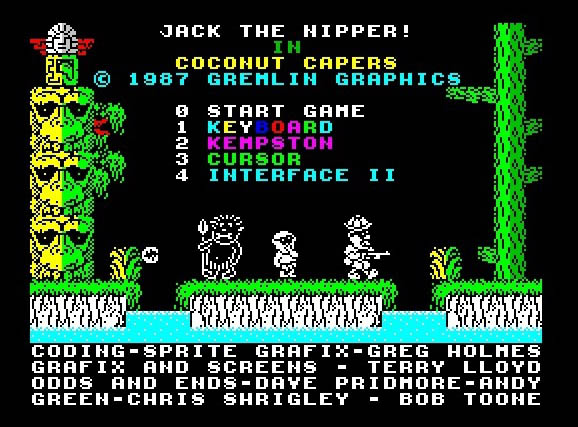December 29, 2017
The Devolution of Video Games: Perspectives on Patience
Today’s topic focuses on the devolution of video games. Now, If I start talking about the video games of my childhood, you might think I’m planning to talk about nostalgia.
Undeniably, if I start talking about such computers as the Spectrum 128k, the Commodore 64, and the Amstrad CPC 6128, some older people will feel a sweet tingling in their hearts. Anyone over 35 years old has certainly heard of MatchDay II, Renegade, R-Type, or Ghosts ‘n Goblins.
In actual fact, however, today’s post will have more to do with something else. If you remember this article, I drew parallels between the expressions of mediocrity that frustrate modern life and the lack of patience displayed by modern people.
The video game evolution is a proper term only when the topic is approached from a technical perspective. Conversely, if you focus on society and culture, we should be talking about video game devolution.

What Is Devolution?
Once again I will resort to my academic background, the Gothic. I talked in this article about time in the Gothic, and an important aspect of this is the element of devolution.
Very briefly, in the fin-de-siècle – that is, the end of the 19th century – British society experienced a sense of end-of-days. There was a certain kind of pessimism in the air, and instead of progress and evolution, there was a certain fear that society could devolve instead. Gothic narratives of the time focused on these issues, giving us, for example, The Island of Dr. Moreau and The Time Machine, both by H.G. Wells.
So, what do I mean by devolution in video games?
Allow me to narrate a little incident that I witnessed a few days ago, and which I believe will illuminate the matter.
If You Can’t Beat ‘Em (Up), Buy ‘Em
I was in the bus, sitting behind two young kids – perhaps ten or eleven years old. They were tapping on their cells, incessantly – in the process missing a wonderful sunset spreading cerise tints over the treetops.
One of them said something about the game being too difficult. The other took a quick look at his friend’s screen and agreed, saying that he’d been stuck in that level too, before asking from his dad to buy for him some extra tokens that helped him make it through. The first kid said that he’d do the same as soon he’d get home.

When I was growing up, video games were different – and no, I am not referring to simpler graphics or rudimentary sounds. First of all, video games back then were complete programs.
There were no additional expansion packs, no patches, no upgrades. If you bought a game, you had a complete, bug-free product that just worked. Some people might argue that it’s easier to make bug-free video games when the gameplay and graphics are that simple, but consider this: What’s easier, to make a game when you have basically limitless sizes to work with, or when you must limit the entire thing in 128 or even 48k of information?
But the most crucial element was the aspect of gameplay and playing difficulty. When I was a kid, video games were hard. Occasionally very hard. Every now and then ridiculously hard.
Anyone who has tried, say, Shadow of the Beast knows what I’m talking about. What did we do? We just tried harder. We changed our strategy or our technique and tried again. The only way to “cheat” was to use some peek & poke coding to get infinite lives or such workarounds. Even then, that taught you how to program so I consider it a win-win scenario.
Video Games Today: From “I Can” to “Gimme”
One of my favorite video games as a kid was Bubble Bobble. Its gameplay was ridiculously simple: you had to trap your enemies in bubbles you could blow, then burst them to advance to the next level.
There was no scrolling, no fancy graphics, nothing of the sort. And yet, I can’t tell you how many hours I’ve spent playing it. The concept was easy, but the difficulty began to increase pretty soon. Levels became more and more complex in terms of architecture, which meant you really had to figure out how to move. You had to think and you had to plan.

Oh, and the humble little Spectrum 128k didn’t have any saving ability, so you had to start from scratch if you lost. That taught you to be patient as well as careful.
(Many) video games today are about mindless tapping, mindless hoarding (build a farm, produce crops, then repeat until you have more, more, more), or mindless buying – with real money.
Can’t advance through a difficult level?
No problem! Daddy’s credit card to the rescue. Get an extra magic potion, become VIP for only $10, obliterate any enemy for $5 (special offer, valid only today: $3). Pat yourself on the back, you made it through another level.
Learning nothing about patience, effort, thinking.
Interested in a modern text-adventure that, while engaging and intelligent, still has attractive visuals and sounds? Check Mansion Escape!
I don't show you ads, newsletter pop-ups, or buttons for disgusting social media; everything is offered for free. Wanna help support a human internet?
(If you'd like to see what exactly you're supporting, read my creative manifesto).
